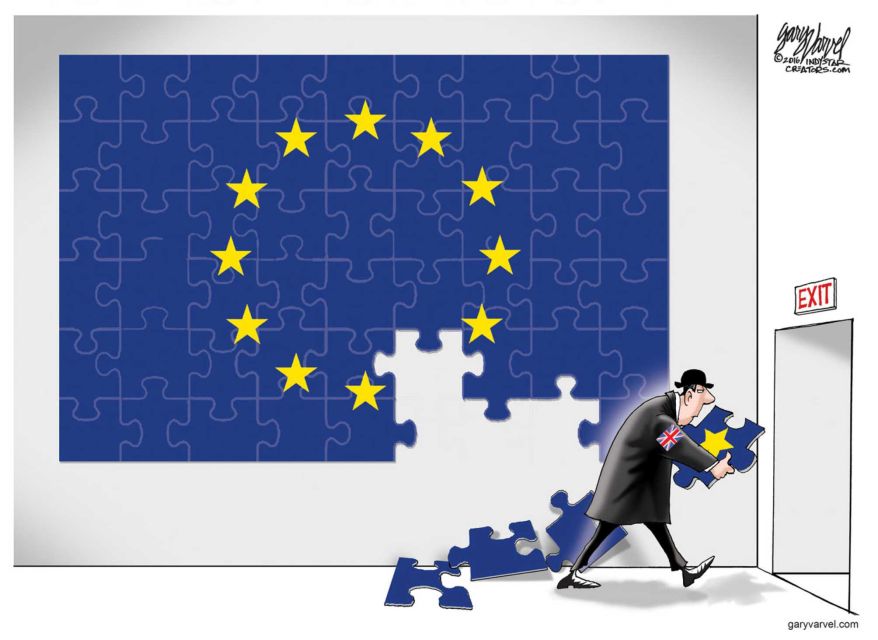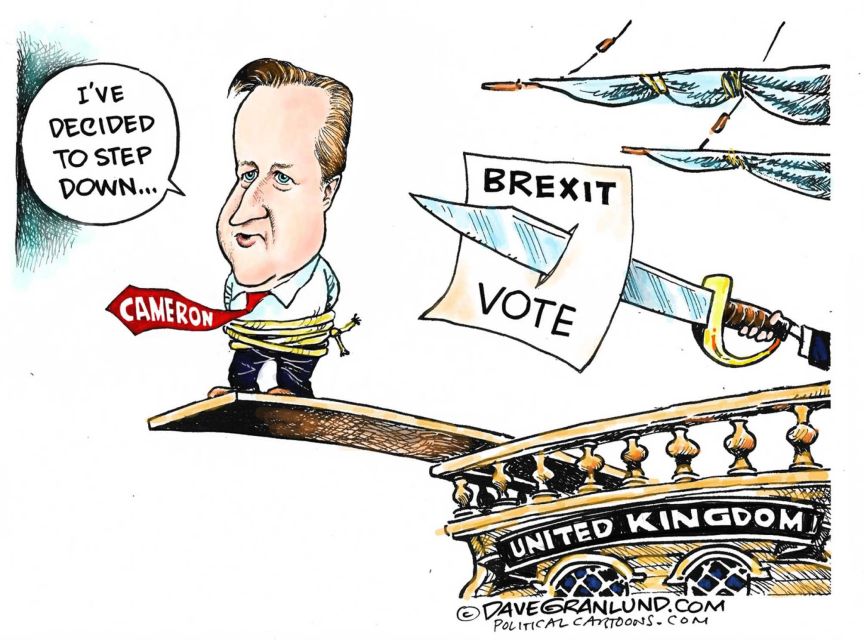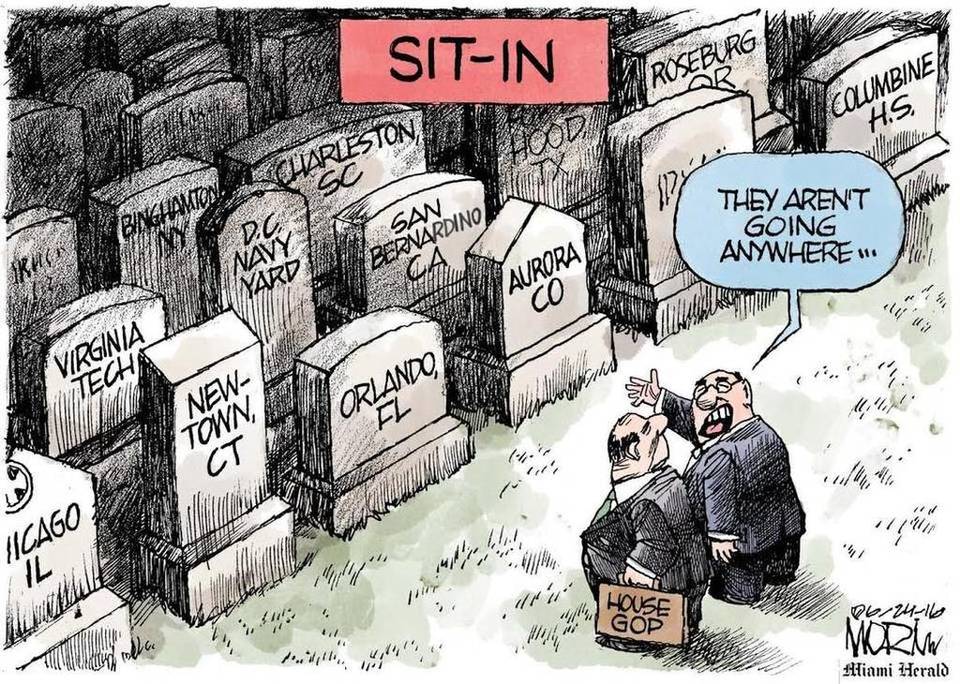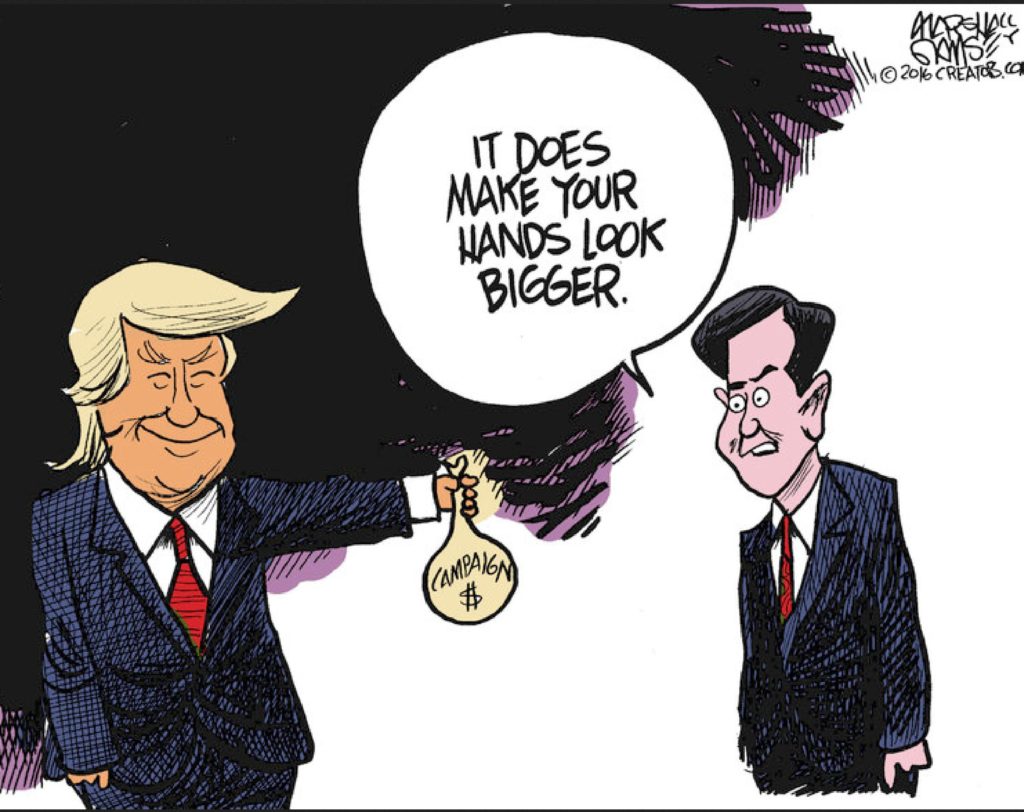The biggest change in our politics in the past 20 years is the rise of populism on the left and right. The populists believe that we are led by a selfish elite that cannot—or will not—deal with the problems of ordinary working people, and there is ample evidence that they are correct.
Trump and Clinton say they will bring back jobs that corporations have shipped offshore. They make China the scapegoat for lost economic opportunity, while the real causes are automation and the triumph of the spreadsheet in corporate strategy.
Those jobs are never coming back, and a candidate who says they can negotiate with foreign governments to bring jobs back demonstrates either their naiveté about the true cause of job loss, or a simple desire to BS the American public.
Voters can see through that.
Economic and cultural insecurity are the bedrock causes for populists. Unemployment and stagnant wages hurts working-class whites, while cultural issues are a top issue for older white Americans. The first group sees their jobs threatened by automation and globalization. They join with older whites in seeing immigrants as scroungers who work for less, grab benefits and if you believe Trump, commit crimes.
Both groups also believe that American society is being undermined by diversity and foreign-born citizens.
This is the battle line of the 2016 presidential election. The mediocre economy that has been with us for nearly 20 years has caused real harm. We remain a wealthy country, but certain groups now see their opportunity slipping away. Slow growth, or no economic growth, means only a few elites will do well, and most voters see the self-serving political class as siding with the elites.
So can a candidate unify an electorate that now plays a zero-sum political game?
- The Pant Load has the better position in this game, since he can exploit pre-existing fears that are based in fact.
- The Pant Suit must carefully calibrate her message, but she cannot be a “maintain the status-quo” candidate and win.
Clinton would do well to consider what William Berkson said in the WaMo:
If there is one national goal that Americans can agree on, it is opportunity for all.
Berkson makes the point that since President Reagan, Republicans have advocated a simple theory of how to grow the economy: The more you reduce government involvement in the economy and the more efficient markets become, the more the economy grows.
Sorry, but the simplistic theory of free market economics has been drowned in a tsunami of fact in the past 35 years. Berkson says:
Both Democratic administrations since Reagan—that of Bill Clinton and Barack Obama—have raised taxes, and under them, the economy grew more rapidly than under the tax-cutters Reagan and George W. Bush.
This opens a path for the Pant Suit. In order to win, she must assure voters that she will deliver more and better jobs. Family income must go up. But how to achieve this?
By advocating a policy of economic opportunity through public investment in infrastructure. It fulfills the promise of opportunity for all, a populist message that has proven to work throughout America’s past. And it allows Clinton to hammer the GOP Congress and Paul Ryan about the lack of any track record for laissez-faire policies, since they have never worked, not even once, as a miracle cure for jobs and income inequality. This would be an open return to Keynesian economics. Here is Eduardo Porter in the NYT:
The Keynesian era ended when Thatcher and Reagan rode onto the scene with a version of capitalism based on tax cuts, privatization and deregulation that helped revive their engines of growth but led the workers of the world to the deeply frustrating, increasingly unequal economy of today.
And led to the low growth economy that drives today’s populist anger.
How to fund that infrastructure expense? More revenue. For the last 40 years, Democrats have been unwilling to counter the conservative argument that higher taxes are a redistribution of wealth between classes. Clinton should argue that current tax policy is really a transfer of resources from tomorrow’s generation to today’s. This is a strong populist message.
Younger Millennials understand this clearly. They already believe Social Security will not be there when they need it. She can win them over if she makes a case for new jobs and new revenues.
When conservatives say that it is unfair for people in their highest earning years to pay more taxes on that income, Clinton can point out that this is a past-due bill that they need to pay just as their elders paid higher taxes that supported the current earners when they were starting out. It was that investment in public resources such as public education and infrastructure, and in research, technology and industry that enabled today’s peak earners to get where they are.
While the strategy opens Clinton to criticism from Grover Norquist and the right about fiscal irresponsibility, it pits Trump against the Tea Party and the GOP. He would need to choose between being a populist or a doctrinaire fiscal conservative. Either way, it will bleed votes from some part of his base.
The strategy could work in down ballot races as well, particularly in the Rust Belt. Maybe working class conservatives will hear her, and not vote against their economic interests for once.
We’ll see if she will move from status quo, to “let’s go” as a campaign strategy.










